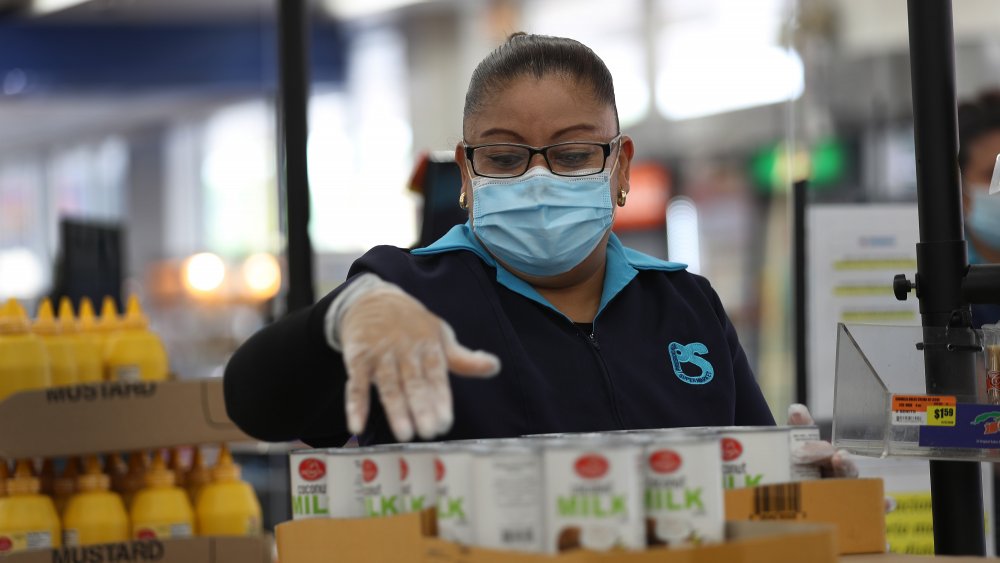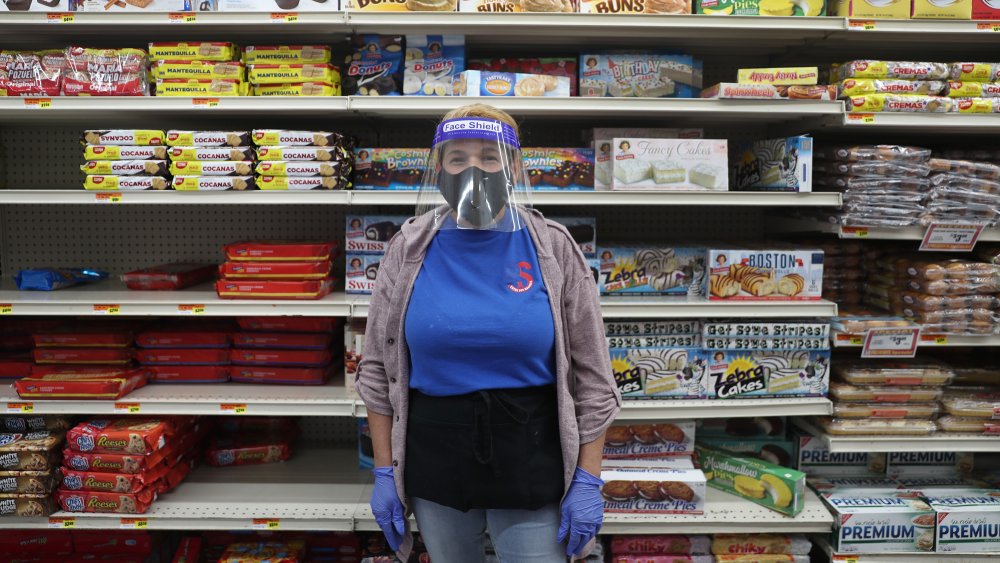The Real Risks Grocery Workers Face Uncovered In Alarming Report
Throughout the COVID-19 epidemic, while restaurants, bars, movie theaters, even schools, and offices all shut their doors and conducted their business either remotely or not at all, grocery stores stayed open for business. Even in instances where shoppers were staying home and ordering their groceries via delivery, very few grocers actually "went dark" and stopped allowing the general public through their doors. As many chains never adopted a policy of requiring customers to wear masks, and those that did (like Costco) did so only after we were already several months into the danger zone, grocery workers were suddenly not only amongst the most vital of our nation's workers, but also some of its most endangered ones.
As alarming reports of grocery store employees sickened by and even dying from COVID-19 started to spread, one major newspaper launched an investigation into what was really going on, and what, if anything, was being done about it. As anyone who saw the movies All the President's Men or The Post is well aware, when it comes to fearless investigative journalism, no paper can top the The Washington Post, and they applied those same dogged investigative skills that broke the Pentagon Papers and Watergate scandals to revealing just how at-risk our nation's grocery store employees really are.
Grocery chains aren't admitting what's really going on
According to The Washington Post's review of data provided by the United Food and Commercial Workers International Union and other sources, at least 5,500 grocery workers nationwide have tested positive for COVID-19, and 100 or more have died. The number of workers exposed to the virus tops 10,000 — as many workers told The Post, despite social distancing efforts, they still share break rooms, bathrooms, and time clocks, and one infected coworker can potentially expose hundreds of fellow employees to the virus. What's more, many reported fearing to call in sick even when symptomatic, as they worried it might lead to losing their jobs.
What really makes things complicated is the lack of information provided by grocery chains. Some employees have been warned to keep quiet regarding fellow workers who became infected, and local health departments told The Post that they were not being kept in the loop by supermarkets where workers had tested positive for COVID-19. A number of grocers did speak with The Post to defend their coronavirus response efforts, but neither Walmart, Trader Joe's, Whole Foods Market, Target, Kroger, BJ's Wholesale Club, nor Lidl would reveal the number of workers who'd tested positive for or died from the virus.
Oscar Alleyne, chief of programs and services at the National Association of County and City Health Officials, criticized this lack of transparency as a failure to protect grocery workers: "You're only as good as the data you have."

